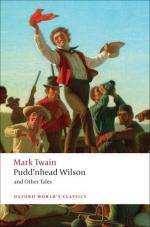However, Badeni secured his majority. The German element in Parliament was apparently become helpless. The Czech deputies were exultant.
Then the music began. Badeni’s voyage, instead of being smooth, was disappointingly rough from the start. The Government must get the Ausgleich through. It must not fail. Badeni’s majority was ready to carry it through; but the minority was determined to obstruct it and delay it until the obnoxious Czech-language measure should be shelved.
The Ausgleich is an Adjustment, Arrangement, Settlement, which holds Austria and Hungary together. It dates from 1867, and has to be renewed every ten years. It establishes the share which Hungary must pay toward the expenses of the imperial Government. Hungary is a kingdom (the Emperor of Austria is its King), and has its own Parliament and governmental machinery. But it has no foreign office, and it has no army—at least its army is a part of the imperial army, is paid out of the imperial treasury, and is under the control of the imperial war office.
The ten-year arrangement was due a year ago, but failed to connect. At least completely. A year’s compromise was arranged. A new arrangement must be effected before the last day of this year. Otherwise the two countries become separate entities. The Emperor would still be King of Hungary—that is, King of an independent foreign country. There would be Hungarian custom-houses on the Austrian border, and there would be a Hungarian army and a Hungarian foreign office. Both countries would be weakened by this, both would suffer damage.
The Opposition in the House, although in the minority, had a good weapon to fight with in the pending Ausgleich. If it could delay the Ausgleich a few weeks, the Government would doubtless have to withdraw the hated language ordinance or lose Hungary.
The Opposition began its fight. Its arms were the Rules of the House. It was soon manifest that by applying these Rules ingeniously it could make the majority helpless, and keep it so as long as it pleased. It could shut off business every now and then with a motion to adjourn. It could require the ayes and noes on the motion, and use up thirty minutes on that detail. It could call for the reading and verification of the minutes of the preceding meeting, and use up half a day in that way. It could require that several of its members be entered upon the list of permitted speakers previously to the opening of a sitting; and as there is no time-limit, further delays could thus be accomplished.
These were all lawful weapons, and the men of the Opposition (technically called the Left) were within their rights in using them. They used them to such dire purpose that all parliamentary business was paralysed. The Right (the Government side) could accomplish nothing. Then it had a saving idea. This idea was a curious one. It was to have the President and the Vice-Presidents of the Parliament trample the Rules under foot upon occasion!




